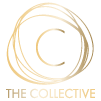How to Recover From An Abusive Friendship
Much has been said about abusive relationships, both in dating and marriage. There is an abundance of information and support groups available for those who have experienced abuse due to a romantic partner. But what about those who have experienced abuse in friendships?
I found myself in an abusive friendship for most of 2023. I knew the friendship was complicated and that it often left me feeling emotionally drained and upset. However, it wasn’t until the friendship ended that I realized the full extent of what I had gone through. I was left with many conflicting emotions, most notably grief and shame. I still cared about and often missed my former friend, despite how he had treated me. I often asked myself, Why do I miss this person who treated me so badly? How could I have let myself be treated that way? Why didn’t I recognize the signs and leave months ago? The truth is that anyone can find themselves in an abusive friendship.
Here are my tips for moving forward:
1. All Emotions Are Okay You might be surprised when feelings you didn’t expect come up. After all, this person mistreated you, so it’s normal to feel angry, upset, sad, scared, or shame. But feelings like guilt, regret, confusion, and grief are also normal. Relationships are rarely all good or all bad; most contain a little of both. So there’s a good chance there were parts of your friendship that provided you with positive feelings or outcomes. Those positive benefits may have been part of the reason the friendship continued as long as it did. It’s okay to miss your former friend, while still acknowledging the harm they caused you. And missing someone doesn’t mean they need to be back in your life.
2. Take Your Time The day my friendship ended, I had some immediate realizations. However, acknowledging that I had been in an abusive friendship was not one of them. That didn’t come until months later. It’s normal for a clear understanding of the friendship to develop over time. In a romantic relationship where abuse occurs, the emotions and brain chemicals that connect us to others often prevent people from seeing the situation clearly. I always think of the phrase “love is blind”. This occurs to some extent in platonic relationships too. Try to meet yourself where you’re at and acknowledge your understanding of the situation at this point in time, knowing that it may be different 6 months or a year from now. Depending on the severity of the abuse, clarity may take years to develop and that’s okay.
3. Connect With Others Humans are wired for connection and none of us were meant to do life alone. Here at The Collective we prioritize social health, and communicating with someone you trust is especially important when recovering from an abusive friendship. This may be another friend, a family member, or a mentor. Finding at least one person you can confide in about what you’ve gone through who will listen with compassion and understanding can go a long way in helping you on your healing journey and in sorting through the confusing and conflicting emotions that are often present.
4. It’s Not Your Fault We hear this frequently in the aftermath of abuse, but it really is true: it’s not your fault. No life circumstances, trauma, or hurt feelings ever justify abuse. What happened to you, whether physical, verbal, mental, emotional, or sexual, is not your doing. One of the most insidious sideeffects of abuse is that the victim/survivor often misplaces their feelings of anger onto themselves. This can lead to depression, anxiety, feelings of low self-worth, and difficulties in living everyday life. Do your best to recognize these thoughts of self-blame when they occur and know that most negative feelings you’re having towards yourself are likely misplaced.
5. Reach Out For Help Sometimes we need some extra support beyond friends, family, or mentors when recovering from a difficult life experience. Seeing a therapist can help you in working through your feelings and trauma with someone who has the training and knowledge to guide you in your recovery. I had a therapist during my abusive friendship and very much valued having her support after it ended. Through working with my therapist I was able to see how the positive aspects of my friendship served me and kept me in it for so long, why it was difficult to leave, and was able to find compassion and acceptance for myself. Abusive friendships can be difficult to overcome and recovery is often not linear. But it is possible to move forward and make new, healthy friendships with individuals who love you, care for you, and respect your boundaries. The Collective supports you in your healing and growth.
